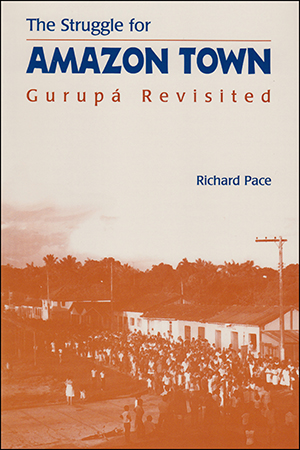
- 1998/244 pages
The Struggle for Amazon Town:
Gurupá Revisited
Hardcover: $30.00
ISBN: 978-1-55587-339-4
Paperback: $19.95
ISBN: 978-1-55587-352-3
Massive changes have engulfed the Brazilian Amazon region in the forty years since Charles Wagley’s landmark study, Amazon Town, was first published. In his engaging restudy, Richard Pace explores today’s "Amazon Town" (Gurupá), where development efforts have left little untouched, little familiar.
Focusing on the actions of the community as it faces new opportunities and recurring adversity, this work enlarges the scope of Wagley’s earlier study and reflects changes in anthropological method. Pace examines the social and cultural history of Gurupá—including such factors as regional underdevelopment, environmental degradation, and social conflict—as well as the more recent effects of political mobilization and Liberation Theology on human rights awareness and social advancement. He richly illustrates the political and economic forces—national and international—that affect Gurupá, and explores the motivations and means of those searching for alternatives to current patterns of development.







